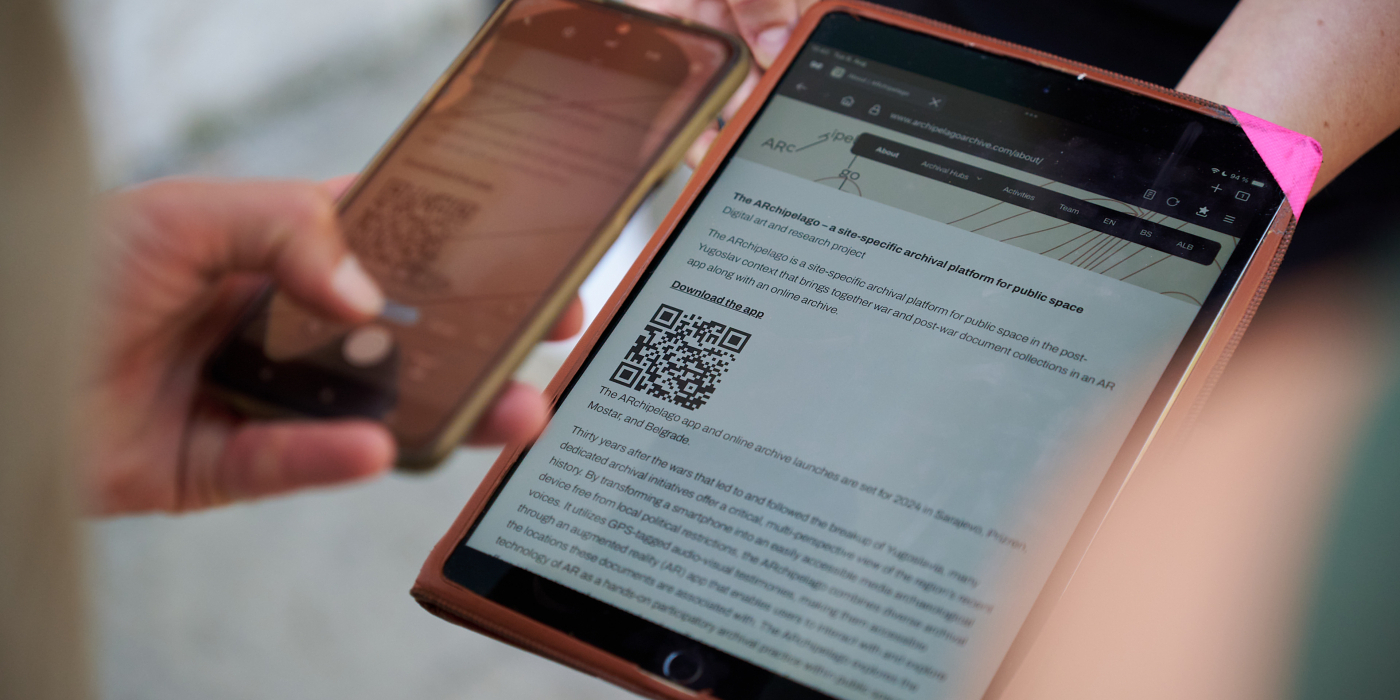07/08/2024
The focus on historical developments and the focus on archives is one of the most ambitious undertakings of the last decade, interweaving technological developments in the ways we can potentially treat these archives and approach them more fundamentally.
But what is ARchipelago? Conceived as an easily accessible online platform in the form of an application, it has led its creators Armina Pilav and Clarissa Thieme in collaboration with Farhan Khalid to work with war archives and post-war documentation in various cities in the Balkans including and the city of Prizren.
The archive of Naci and Nafis Lokvica, whose family archive contains rudimentary documents of life in Prizren, and following the events of 1999 with NATO's intervention in Kosovo, by the Public Archive project of Lumbardhi is available to be viewed and read through this application.
The way in which this application works is to see the points located on the map of the city of Prizren (but not only) and audio-visual documentation is attached to these locations as well as accompanying texts that contextualize these materials.
So ARchipelago brings this combination of historical and personal materials to build new forms between which we can easily access information.
_ARchipelago_SuerCelina-lokvica_.jpg)
Bengi Muzbeg, one of the collaborators in Prizren, says that: “The reorganization and visibility of the archives, especially individual archives, actually serves a very important function in understanding the loss of value we are experiencing.”
The ARchipelago team developed a mediated guide to Prizren, as an interactive form to put this digitized archive to work with the possibility of opening new paths on how archives can be revitalized. Which paves the way for new works in the future and Muzbeg says that: “In the future ARchipelago is trying to bring together individual memories from different geographies, especially from the Balkans. When these archives are revisited, we will notice that the existing problems are actually our common problems. They are not just regional problems, but system problems.”
This project was developed in collaboration with CZDK (Center for Cultural Decontamination, Belgrade/Serbia), Dokufest, Lumbardhi Public Archive with the collection of Naci and Nasif Lokvica archives, Hamdija Kreševljaković Library, (Sarajevo/Bosnia and Herzegovina) Un-War Space Lab, (Brač Island/ Croatia and Mostar / Bosnia and Herzegovina).
Download the app: here
By: Blerina Kanxha
Photo: Suer Celina



